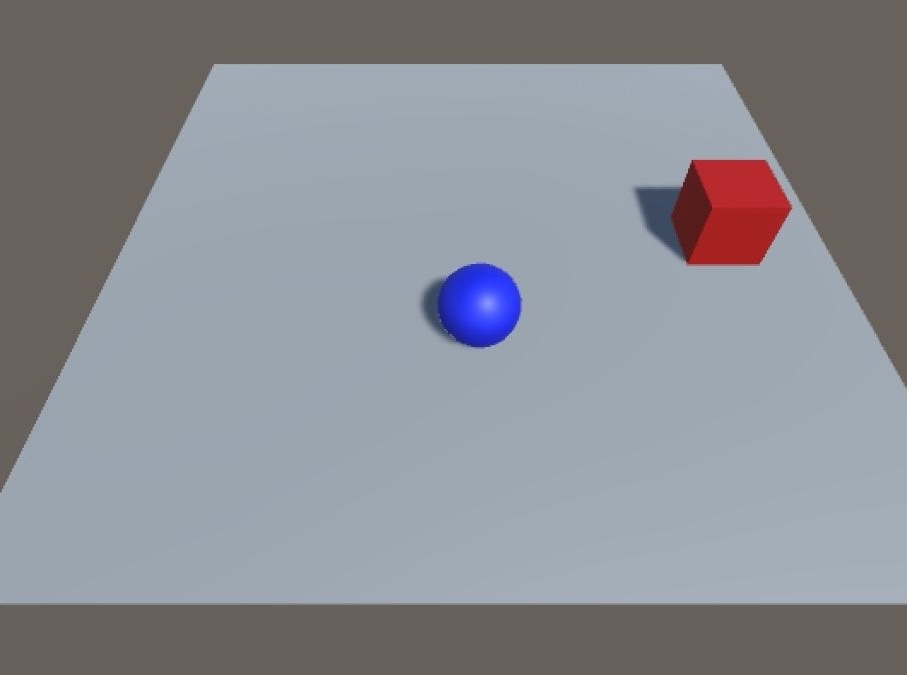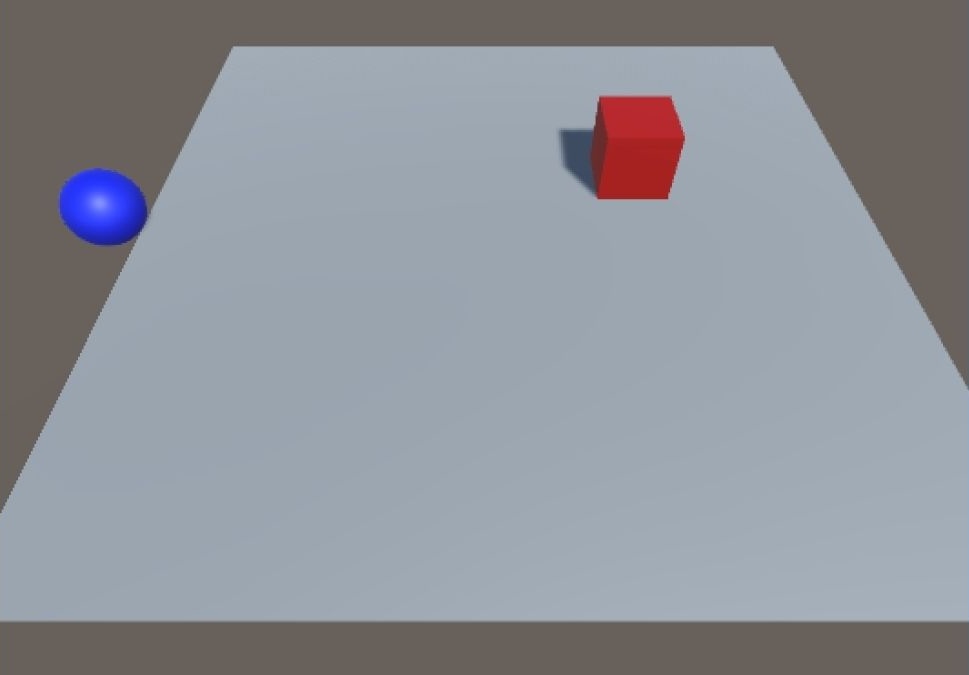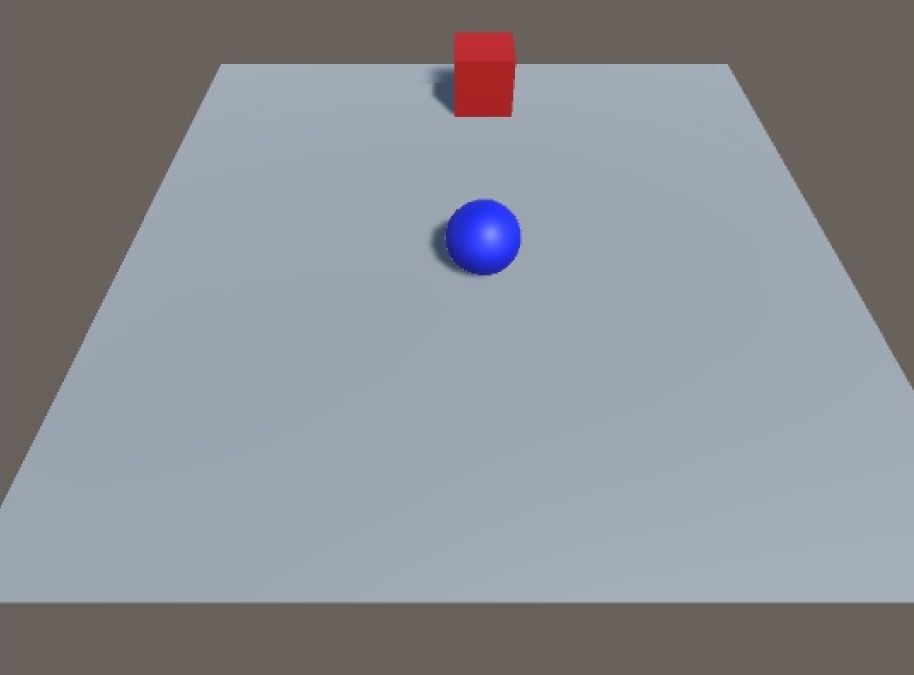
I identified an opportunity to apply machine learning principles to a fundamental game design challenge: creating an intelligent agent capable of navigating an environment to achieve a goal. The traditional approach would involve scripting predetermined movements. However, I wanted to explore a more dynamic and adaptive solution. The goal was to train an agent to learn the optimal strategy for a simple RollerBall game, where a blue ball must hit a red box target. This project allowed me to experiment with machine learning agents and reinforcement learning within a practical, game-based context.
My solution was to develop a RollerBall game in Unity using C# and Unity's ML-Agents Toolkit. I designed the game with a blue ball as the agent and a red box as the target. The agent's task was to learn how to move effectively to collide with the target while avoiding falling off the platform. I implemented a reward system to guide the agent's learning: a positive reward for hitting the target and a negative reward for falling off the platform. The agent's movements are controlled by the arrow keys on the computer. This setup created a clear objective and a feedback loop, enabling the agent to iteratively improve its performance through trial and error.


The project successfully demonstrates the application of reinforcement learning to game AI. By training the agent with a reward system, I was able to create a blue ball that learns to efficiently hit the red box. The key impact is that the agent developed its own strategy, rather than following hard-coded instructions. This approach can be scaled to more complex games, offering a powerful alternative to traditional game AI. The project showcases my skills in C#, Unity, and machine learning, highlighting my ability to solve problems by developing intelligent and adaptive systems. The game's simple mechanics make it a compelling and easy-to-understand demonstration of a complex technological solution.